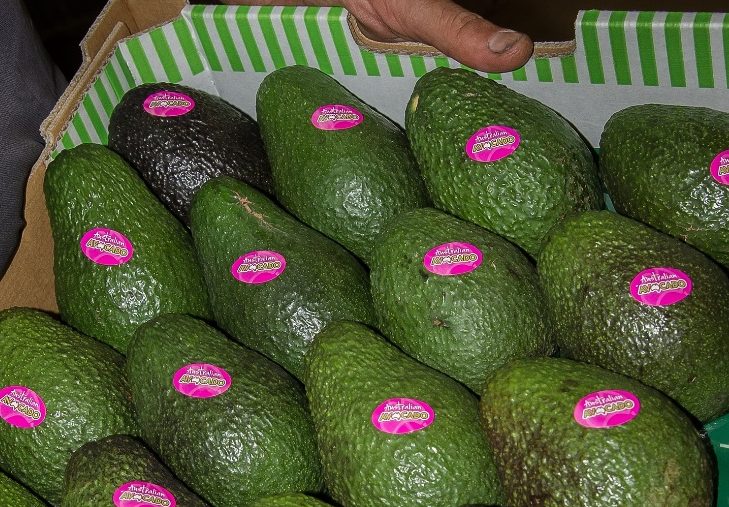Avoca-don’t? The global avocado crisis and the question of supply system resilience
09/05/2017

“Holy Guacamole” and “Guaca-moolah”! Headline writers and twitter addicts have had a field day over the recent surge in prices for avocados, but joking aside, the combination of factors leading to poor harvests that have caused avocado prices to peak at their highest level in 19 years should ring alarm bells for those who take an interest in global food security issues. So what’s brought it about? Well, there’s drought in California, severe flooding in southern Peru, and grower strikes in Mexico, along with massive increases in global demand over the past few years due to changing diets driven by increasing awareness of the fruit’s perceived health benefits.
Although Mexico is by far the world’s largest producer of avocados, the UK relies on imports from elsewhere, with Peru, South Africa, Chile, Israel and Spain (in that order) accounting for 84% of the avocados brought into the UK over the last five years. Many of these are areas that are water-scarce and face the threat of drought and erratic rainfall. For example, droughts in Peru and Chile last year were followed by torrential rains, and many parts of South Africa are still in the grips of a severe drought. Large quantities of water are used for irrigation of avocados and, on average, the water consumption associated with the UK’s avocado intake from these five countries alone is estimated to stand at over 25 million cubic metres annually, which is equivalent to 10,000 Olympic-sized swimming pools!
Over the last three years, the price of avocados in the UK has doubled, but implications of water stress go beyond an extortionate bowl of guacamole for first-world consumers. The boom in prices, engendered by their growing role in Western diets, has led to deforestation (both legal and illegal) in Mexico, and heavy pesticide use in production has been linked to pollution of water resources and respiratory and digestive illness in local populations.
Resilience in the UK’s supply chain
Avocados are just a small part of the story, but they show how water-related impacts combine with other pressures to create a range of environmental, economic and social risks at many levels within fresh fruit and vegetable supply chains. Almost 70% of the fresh fruit and vegetables consumed in the UK are grown overseas, with most coming from water-scarce countries like Spain, South Africa, Chile and Turkey. As growing nutritional awareness on one hand encourages consumers to increase their intake, population growth, dwindling water resources and the impacts of climate change will increasingly combine to drive higher prices, which are likely in turn to lead to adverse outcomes at different locations within the system.
Our project, Increasing resilience to water-related risk in the UK fresh fruit and vegetable system*, seeks to identify where the UK’s fresh fruit and vegetable system is particularly vulnerable to water-related risk, explore how this may change in future, and carry out participatory work with stakeholders throughout the system to identify shared visions for moving the system in a more resilient direction. By scrutinising aspects of the system that have a bearing on questions of resilience to water-related risks such as trade agility, water efficiency, local water scarcity within production centres and stakeholder views of resilience, the project will identify and promote strategies for improved water management by primary producers, retailers and policy makers. With a better systemic understanding of stakeholder perceptions, preferences and strategies for risk reduction, hopefully the future for avocados (and the rest of the fruit and veg we consume) will be a little less pear-shaped.
*The project is funded through the Global Food Security’s ‘Resilience of the UK Food System Programme’, with support from BBSRC, ESRC, NERC and Scottish Government.
Categories & Tags:
Leave a comment on this post:
You might also like…
Keren Tuv: My Cranfield experience studying Renewable Energy
Hello, my name is Keren, I am from London, UK, and I am studying Renewable Energy MSc. My journey to discovering Cranfield University began when I first decided to return to academia to pursue ...
3D Metal Manufacturing in space: A look into the future
David Rico Sierra, Research Fellow in Additive Manufacturing, was recently involved in an exciting project to manufacture parts using 3D printers in space. Here he reflects on his time working with Airbus in Toulouse… ...
A Legacy of Courage: From India to Britain, Three Generations Find Their Home
My story begins with my grandfather, who plucked up the courage to travel aboard at the age of 22 and start a new life in the UK. I don’t think he would have thought that ...
Cranfield to JLR: mastering mechatronics for a dream career
My name is Jerin Tom, and in 2023 I graduated from Cranfield with an MSc in Automotive Mechatronics. Originally from India, I've always been fascinated by the world of automobiles. Why Cranfield and the ...
Bringing the vision of advanced air mobility closer to reality
Experts at Cranfield University led by Professor Antonios Tsourdos, Head of the Autonomous and Cyber-Physical Systems Centre, are part of the Air Mobility Ecosystem Consortium (AMEC), which aims to demonstrate the commercial and operational ...
Using grey literature in your research: A short guide
As you research and write your thesis, you might come across, or be looking for, ‘grey literature’. This is quite simply material that is either unpublished, or published but not in a commercial form. Types ...






